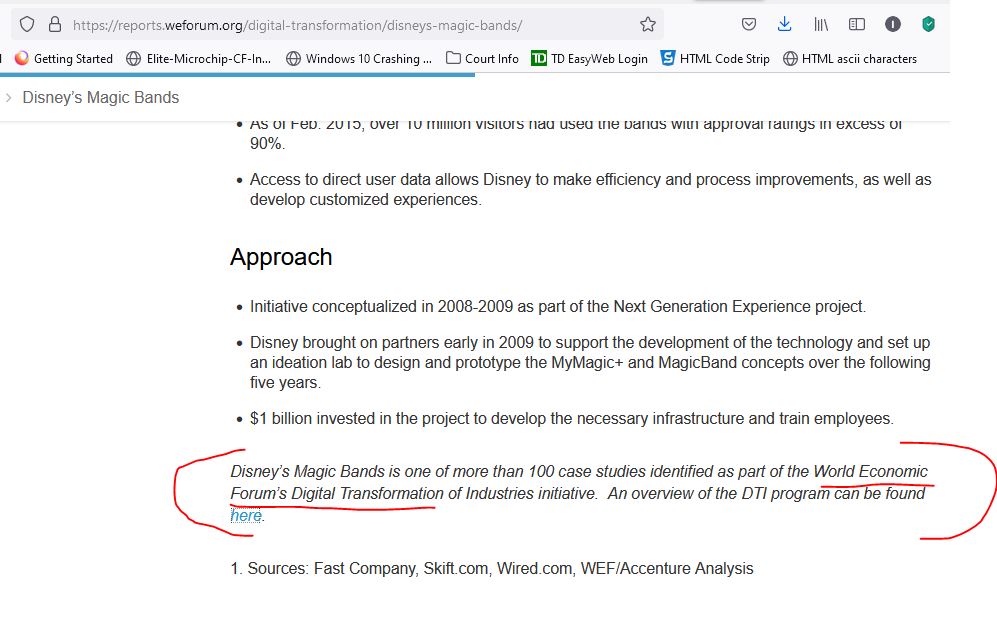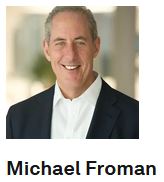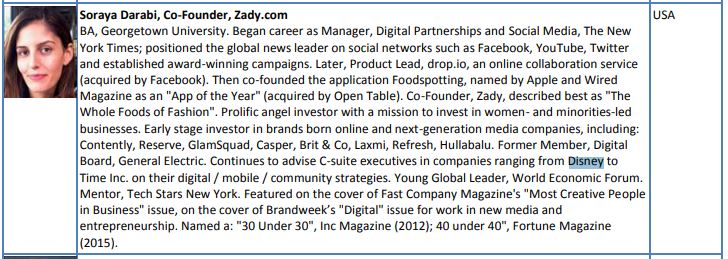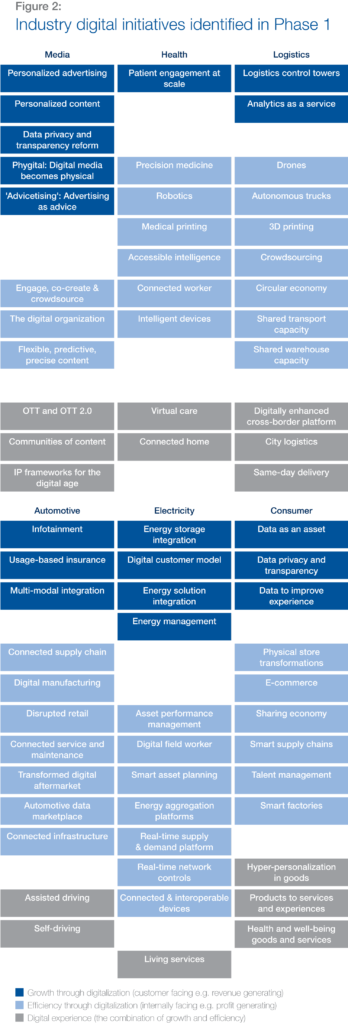Republican Florida Gov. Ron DeSantis lashed out at Disney executives on Tuesday — one day after the Mouse House condemned the governor’s signing of the so-called “Don’t Say Gay” bill.
Disney CEO Bob Chapek and other top executives have stepped up their criticism of GOP-backed legislation after outraged employees publicly condemned its initial response to the controversy.
After the introduction. News starts at timestamp 3:25.
Disney news starts at 8:52.
“For Disney to come out and put a statement and say that the bill should have never passed and they are going to actively work to repeal it — I think, one, was fundamentally dishonest. But two, I think that crossed the line,” DeSantis said at a press conference.
“This state is governed by the interests of the people of the state of Florida. It is not based on the demands of California corporate executives. They do not run this state. They do not control this state,” the governor added.
DeSantis signed Florida HB 1557 into law on Monday despite critics who decried the measure as harmful and discriminatory. The legislation bans Florida teachers from discussing LGBTQ topics like sexual orientation or gender identity with students unless they’re in the fourth grade or higher.
Disney released a scathing statement shortly after DeSantis signed the bill, declaring it “should never have passed and should never have been signed into law.”
“Our goal as a company is for this law to be repealed by the legislature or struck down in the courts, and we remain committed to supporting the national and state organizations working to achieve that,” Disney said in a statement.
READ MORE AT:
Using smart wrist bands to improve and personalize customer experiences in Disney World resorts
Key facts
- In 2014, Disney¹ launched multi-coloured RFID wristbands – Magic Bands – for guests visiting the Disney World resort that link to the company’s guest management system, MyMagic+.
- MagicBands allow guests to manage their entire customer experience using the band; it enables them to make payments, manage reservations, access hotel rooms and enables staff to deliver a highly personalized experience.
- The app allows guests to link their hotel reservations, credit cards, park tickets and personal details to their wristband.
Uniqueness
- The personalized MagicBands work in tandem with Disney’s analytics servers to create personalized itineraries based on preferences.
- The bands provide a seamless experience while at the park by removing the need for multiple tickets, reservations or payments.
- Links to park infrastructure enable staff to know who you are and what you need (e.g. pre-ordered food at park restaurants).
Value
- Increased footfalls from unique personalized digital experience throughout the period of stay.
- 20% increase in Q4 2014 profits, driven at least partly by higher customer spending.
- As of Feb. 2015, over 10 million visitors had used the bands with approval ratings in excess of 90%.
- Access to direct user data allows Disney to make efficiency and process improvements, as well as develop customized experiences.
Approach
- Initiative conceptualized in 2008-2009 as part of the Next Generation Experience project.
- Disney brought on partners early in 2009 to support the development of the technology and set up an ideation lab to design and prototype the MyMagic+ and MagicBand concepts over the following five years.
- $1 billion invested in the project to develop the necessary infrastructure and train employees.
Disney’s Magic Bands is one of more than 100 case studies identified as part of the World Economic Forum’s Digital Transformation of Industries initiative. An overview of the DTI program can be found here. [Scroll to the bottom of this page, to see the content linked here.]
1. Sources: Fast Company, Skift.com, Wired.com, WEF/Accenture Analysis
Corporations Like Disney Will Be Unelected Rulers Under The Great Reset
Who is Disney? Why are they pushing transgenderism? More!

Disney’s Leaked Indoctrination Video Gets a Brutal DeSantis Response | Direct Message | Rubin Report
Disney Whistleblower
Members of the WEF, who are associated with Disney:


Formerly: managed development of smart handheld products, Motorola; managed strategic alliances and special projects for theme parks globally, Walt Disney Imagineering




Cooperated with external partner to negotiate the best advertising plan in 20 cities with less budget, enhanced branding awareness Planned and executed more than 20 sponsorship of industry conferences per year and high level summits (Summer Davos, Boao, G20 summit, etc.), as well as the cooperation of solar projects with the Everest base camp, Disney, Peking University, Tsinghua University to raise the brand image Organized Japan, Beijing press conference and other media events, planned and executed the cooperation with 5 industry associations to maintain good relations

At IFC, Wilmot was also Senior Advisor to the CEO on entrepreneurship in conjunction with the World Economic Forum’s Global Agenda Council on Youth Unemployment and co-developed IFC’s early strategy for fragile states and conflicted-affected areas. Wilmot previously worked in technology M&A investment banking with JPMorgan Hambrecht & Quist, in venture capital with Commonwealth Enterprise Fund, in finance and strategy with the ABC Television Network (Walt Disney Company) and with the private placements and IPO groups of Merrill Lynch & Company










More Coming….

An introduction to the
Digital Transformation of Industries Initiative
Shared from http://reports.weforum.org/digital-transformation/an-introduction-to-the-digital-transformation-initiative/
The digital transformation of industries represents an immense opportunity to create value for both industry and society.
Rapid advances in digital technology are redefining our world. The plummeting cost of advanced technologies (a top-of-the-range smartphone in 2007 cost $499; a model with similar specifications cost $10 in 2015) is revolutionizing business and society. And the ‘combinatorial’ effects of these technologies – mobile, cloud, artificial intelligence, sensors and analytics among others – is accelerating progress exponentially. Technology is the multiplier.
Digital transformation provides industry with unparalleled opportunities for value creation. It used to take Fortune 500 companies an average of 20 years to reach a billion-dollar valuation; today’s digital startups are getting there in four. Digital technologies are creating new profit pools by transforming customer expectations and how companies can address them.
At the same time, digitalization could produce benefits for society that equal, or even surpass, the value created for industry – the mass adoption of autonomous vehicles and usage-based car insurance, for instance, could save up to 1 million lives by 2025.
At present, digital transformation is not well understood, and a number of myths are obscuring the path to realizing its potential for value creation. We demystify some of the most common myths about digital, revealing, for example, the true extent of disruption by digital startups and how the impact of automation on employment is likely to be very different from today’s received wisdom on the subject.
Action will be needed to realize the benefits to society and industry of digitalization
The importance of realizing the combined value of digital transformation cannot be overstated, given digitization’s central role in tackling many of the challenges we face today. The world’s energy and natural resource usage is unsustainable. Further increases in life expectancy are at risk without resolving the growing cost structures of overburdened health systems.
Yet the benefits of digitalization will not accrue automatically to industry or society, and there is a risk that the promise of digital transformation will go unfulfilled. Moreover, organizations do not always understand what impact their digital initiatives will have on different aspects of society – from employment to the environment and beyond – or what responsibility they should bear for addressing any unintended consequences of digitalization.
How can enterprises deliver ‘combined value’, maximizing benefits both for industry and society?
Our ‘value at stake’ analysis of more than 65 digital initiatives (see Figure 1) suggests that the combined value – to society and industry – of digital transformation across industries is upwards of $100 trillion over the next 10 years. To assess how enterprises can maximize the value of digitalization for industry and society, we also analyzed four cross-industry themes: digital consumption, digital enterprise, societal implications and platform governance. Individually and together, these themes represent dramatic shifts in the way demand is met by supply and the impact of digitalization on social outcomes.

From the nine DTI white papers that have been published this year, we have distilled our research and analysis down to a handful of key questions for industry leaders to consider and act on, to help deliver ‘combined value’.

Digital Transformation of Industries
Demystifying Digital and Securing $100 Trillion of Value for Society and Industry by 2025, an overview of the World Economic Forum’s Digital Transformation of Industries (DTI) initiative, is available here.
The DTI initiative has focused so far on six industries (automotive, consumer, electricity, healt
hcare, logistics and media) and four cross-industry themes (digital consumption, digital enterprise, societal implications, and platform governance).
Disney’s ‘Avatar 2’ Collapses Nearly 60 Percent In Only Second Week of Release
OPINION: This article may contain commentary which reflects the author’s opinion.
The Walt Disney Co. appears to be on the path to another disappointing theatrical release with the new animated Avatar sequel. The film, “Avatar: The Way of Water,” earned around $56 million for the weekend that ended on Sunday, which represented a 58.2 percent decline from its debut a week ago.
While some caution that there could be mitigating factors that tempered movie attendance, such as the Christmas holiday over the weekend and the bomb cyclone that prevented much of the country from doing a lot of traveling amid bitter cold and snow, the poor second-week performance, nevertheless, likely has Disney execs on edge after a number of other high-profile flops this year.
“So far, Avatar 2 has grossed $279.7 domestically — a weak beginning for the most hyped movie of the year. The figure suggests the movie is having trouble generating the kind of repeat viewing that propelled the first Avatar to become the highest-grossing movie of all time,” Breitbart News reported.
The report added:
Globally, Avatar 2 has so far grossed $881.4 million. The movie had an estimated production budget of $460 million, which doesn’t include marketing costs, meaning it will have to gross between $1.5 billion to $2 billion just to break even.
Perhaps most worryingly for Disney, the movie is the latest in a growing line of Hollywood blockbusters to flop in China, bringing in $57.1 million on its opening weekend there, far below the approximately $120 million it was expected to earn.
The first Avatar film, released in 2009, was a major hit in China, where it grossed $200 million.
The entertainment giant has been taking financial hits for the past year, with many critics blaming the company for putting “woke” ideology ahead of what a majority of Americans actually want to see. The dismal performance led to the firing of CEO Bob Chapek, who was replaced by former CEO Bob Iger last month.
Chapek’s tenure has been marked with complaints of overtly “woke” content that has failed to resonate with audiences, falling stock prices, and bleeding profits, not to mention a political fight with Florida’s most popular elected official.
The Daily Wire noted as well:
Disney stock has fallen over 40% over the last year amid an ailing economy. It’s woes have been blamed on a series of decisions that have alienated its family-minded and in many cases, conservative, customer base. The company clashed bitterly with Florida Governor Ron DeSantis over a law that prohibits public schools from teaching kids below the fourth grade about sexual orientation and radical gender theory.
The company was also criticized for featuring a lesbian kiss in kids’ movie “Lightyear,” showing a transgender man purchasing tampons in a TV series, and emphatically embracing the trend of Environmental, Social, and Governance, a strategy that courts investors by promoting a host of woke values within the corporate structure.
The Mouse House lost billions during the COVID-19 pandemic, including having its parks closed for much of the time. Chapek was charged with bringing Disney back to profitability, but instead, he caved to a small number of employees who opposed a piece of legislation in Florida barring trans and LGBTQ curriculum being taught to children between kindergarten and third grade.
Disney’s previous animated offering, “Strange World,” also flopped.
According to reports, the film, which includes an openly gay teenager, brought in a paltry $4.2 million during its Thanksgiving Day release, while earning slightly more than $11 million over the subsequent 5-day period. The film cost $180 million to make, Variety reported, adding that, when all is said and done, Strange World could lose north of $100 million.
“Even with proper attention on Disney+ and home entertainment platforms, box office experts suggest it’ll be difficult to get the big-budget film into the black,” Variety reported. “Since ‘Strange World’ cost $180 million to produce and tens of millions more in global marketing and distribution fees, the film needs to gross roughly $360 million to break even, sources say.”







